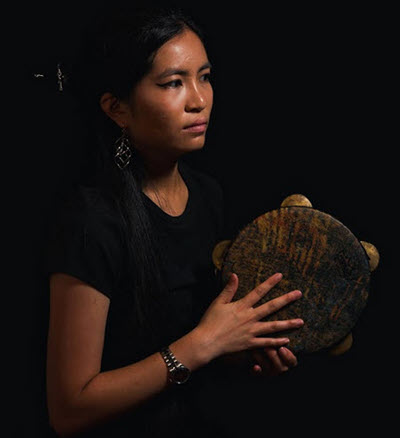by Mira Fu-En Huang
Published October 27, 2025
You’ve been hired to sing for a local concert — it’s one of several this week, and you’ll be compensated for your troubles. You’ve cobbled together countless weeks like this, and it’s how you get by. You sing wonderfully, and afterwards, a line of adoring fans forms to rave about your skills. And then someone asks: “So, what’s your real job?”

This scenario is incredibly common. I lived it in 2022 and 2023, when I was fresh out of grad school and desperately trying to make it as a freelance singer. I had patched together a schedule of part-time arts administration and hustling. I was auditioning, taking miserable gigs, and commuting up to three hours each way — without a car. I was doing so much more than a 9-to-5, and yet, people still asked what my “real” job was.
Pinocchio wants to be a real boy, and everyone wants a real job. For a long time, I wanted people to see music itself to be that reality. After all, I worked hard. I survived the voice lessons, the late-night rehearsals, the nasty music directors, and the frantic outfit changes in Starbucks bathrooms. I survived the trials and tribulations of being a freelancer, and surely for that, the Fairy should make me a real boy.
But American early-music infrastructure is not designed for fairytale endings. I will never forget how, during my last studio class at the Peabody Conservatory, my voice teacher listened to us sing and burst into tears. She said all of us were so talented, and yet, only a few of us would ever “make it” — and it wasn’t fair. Perhaps even more tragically, none of us were surprised by this. I was in early grade school when I told my mom I wanted to be either an artist or a writer, and she replied, “Well, I guess you’ll have to get a good MRS degree.”
The truth of the matter is that the Fairy can only tap a few of us for greatness. The rest of us puppets are left behind, to grow dusty in the wings, marry up, or don office clothes and assimilate into the real world.
I chose the third option, though it wasn’t easy. I wanted to believe that if I worked hard enough, the Fairy would choose me, and I’d get my happy ending. But I’m the type to stop eating if I’m stressed, and it wasn’t until I realized I’d taken in all my clothes by two inches and they still didn’t fit, that I admitted I needed to get out.
In 2023, I picked up a full-time day job in nonprofit administration, in a field completely unrelated to the arts. At the same time, I co-founded Magdalena, an early-music ensemble, and became its administrative director. The transition was neither instant nor easy. For nine months, I continued my freelance singing, clocking in 95 hours of work a week — until another stress-fasting episode and other life drama forced me to scale back. Nowadays, I have my day job, and I spend my free time on some miscellaneous hobbies, the odd gig here or there, and my slippery but loveable Magdalenians. That’s about it.
I have days when I’m bitter about this. I sometimes think I should have been happy freelancing, and that having a nonmusical day job is a betrayal to the puppet I used to be. But the more I live like this, the more I understand how untrue it is. I need a day job to flourish. I need the practical things, like the steady salary and health insurance. I also need to give my brain breaks from music; though I occasionally flirt with burnout, I enjoy juggling different kinds of projects at once. I’ve even found that the less time I have for music, the more precious that music becomes. These days, I’m performing better than I did when I was a full-time freelancer, or even a half-time freelancer. For me, this lifestyle works.
‘These days, I’m performing better than I did when I was a full-time freelancer’
I always thought that if I pursued music, I would do it all the way. Either the magical Fairy of hard work and good luck would guide me to a well-paid freelancer’s life, or I’d languish in the slums as a misunderstood but artistically fulfilled piece of wood. I don’t think there’s anything inherently wrong with being the real boy or the puppet, but I’ve learned that neither of them is me.
I am not all wood, and I am not all flesh, either. I am a patchwork of passion projects and paper-pushing, stitched together by gigs and Google docs. Perhaps it’s a little tragic, or even grotesque. At the very least, it’s chaotic. But I’ve animated my weird little chimera with joy, and for now, that’s enough.
Mira Fu-En Huang is a Baltimore-based administrator by day and early- and new-music vocalist by night. She spends her free time writing and practicing various percussion and wind instruments.

